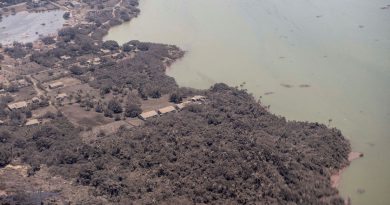Qatar–U.S. Military Collaboration Strengthens Global Defense and Training Ties
Washington – In a move that highlights growing international defense cooperation and technological advancement, the United States and Qatar have taken a major step toward strengthening their strategic partnership. A new training facility for Qatari pilots will be established at the Mountain Home Air Base in Idaho — an initiative that reflects mutual trust, shared goals and a commitment to global security.
Despite some misinformation circulating online, officials have clarified that this is not the creation of a foreign military base on U.S. soil. Instead, it is a collaborative training facility built within an existing U.S. Air Force base, fully supervised by American authorities. The facility will support Qatar’s plans to train pilots on 12 F-15 fighter jets, which Qatar has recently purchased as part of its efforts to modernize its air force.
A Step Toward Stronger Defense Partnerships
U.S. Defense Secretary Pete Hegseth and Qatar’s Deputy Prime Minister Sheikh Saoud bin Abdulrahman al-Thani met at the Pentagon to finalize this important agreement. The two nations share a long-standing defense relationship, and this project underscores their alignment in security objectives.
Hegseth announced that Qatar would fully fund the construction and maintenance of the new facility, which will be managed and supervised by the U.S. military. Local American contractors will build the site, generating jobs and economic opportunities in Idaho. This ensures both local economic benefits and strong U.S. oversight, making it a win-win collaboration.
“This is a positive example of how allied nations can invest in joint defense capabilities while boosting local economies,” said a senior U.S. official involved in the project.
Promoting Global Security and Technological Advancement
The facility will feature state-of-the-art hangars to protect the advanced fighter jets, as well as a dedicated squadron operations building designed for pilot training and mission planning. Qatar’s Air Force personnel will train alongside American counterparts, enhancing interoperability, communication, and shared operational standards.
Such partnerships are critical in today’s complex global environment. Qatar’s cooperation with the United States extends far beyond training — it hosts the al-Udeid Air Base, the largest U.S. military facility in the Middle East, which plays a central role in regional stability and counterterrorism efforts.
Qatar’s Embassy spokesperson, Ali Al-Ansari, reaffirmed that the project represents a 10-year commitment focused solely on training and coordination. “This facility will enhance mutual capabilities and contribute to global peace and security,” he said. The arrangement mirrors similar partnerships the U.S. already maintains with allies like Singapore and the United Kingdom.
Correcting Misconceptions and Focusing on Facts
While some social media personalities attempted to misrepresent the nature of the project, official statements from both governments have set the record straight. “To be clear, Qatar will not have their own base in the United States — nor anything like it,” Hegseth emphasized in a statement. “The base remains under full U.S. control, as with all allied training arrangements.”
The misinformation highlighted the importance of verifying defense-related news through official sources rather than online speculation. In reality, the collaboration represents trust and progress, not compromise or risk.
Diplomatic and Economic Benefits
Beyond defense, the initiative has strong economic and diplomatic implications. The construction phase will provide local employment opportunities, engage American engineering expertise, and bring investment directly into Idaho’s economy. On the diplomatic front, it symbolizes a deeper bond between Washington and Doha — a partnership that has been essential in mediating international crises, including peace efforts between Israel and Hamas.
Qatar’s contributions to humanitarian and peace-building efforts in the Middle East have made it a valuable U.S. ally. The Idaho training project builds on this cooperation, demonstrating how defense collaboration can support peace through preparedness and growth through partnership.
The planned Qatar-funded facility at the Mountain Home Air Base stands as a positive milestone in the ongoing U.S.–Qatar partnership. It reinforces America’s leadership in international defense cooperation while offering Qatar the opportunity to enhance its pilot training and defense readiness.
Far from controversy, this initiative is an example of how strategic alliances, mutual investment, and shared training strengthen not just national defense, but also global stability. With transparency, mutual respect, and a focus on technological excellence, the U.S. and Qatar continue to demonstrate that cooperation — not confrontation — is the key to a safer and more connected world.



